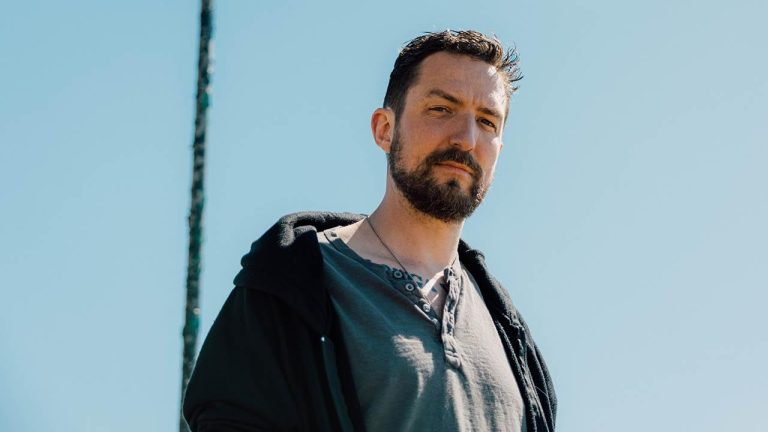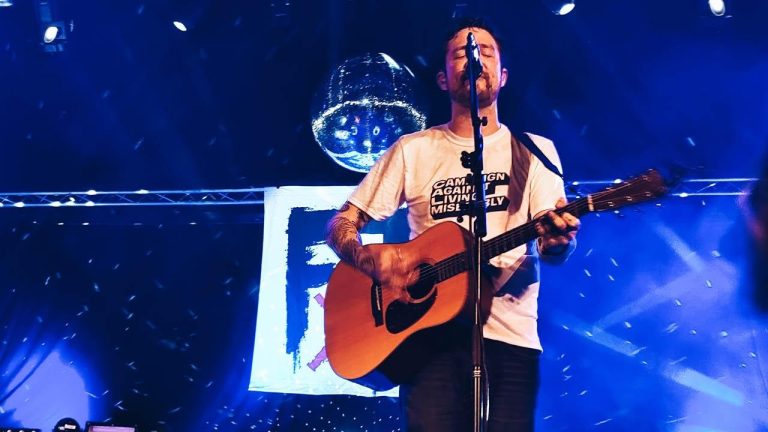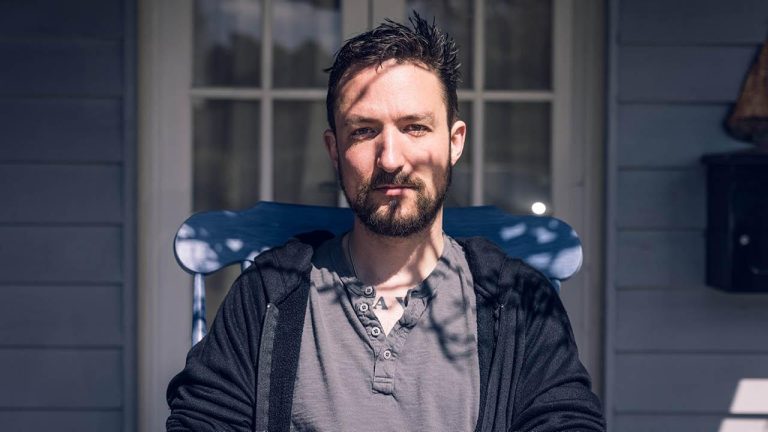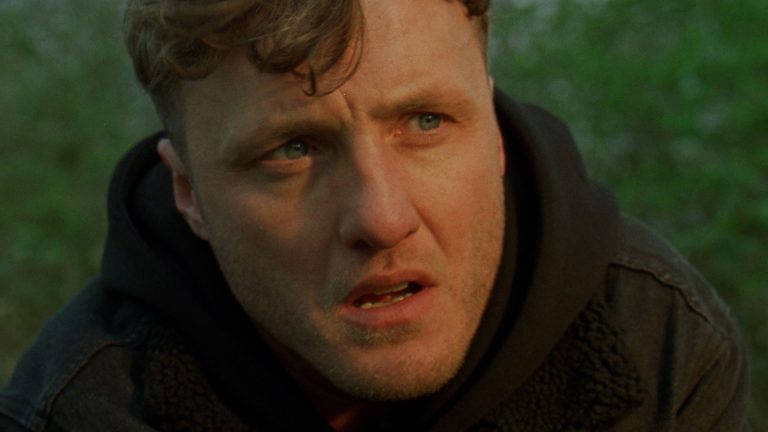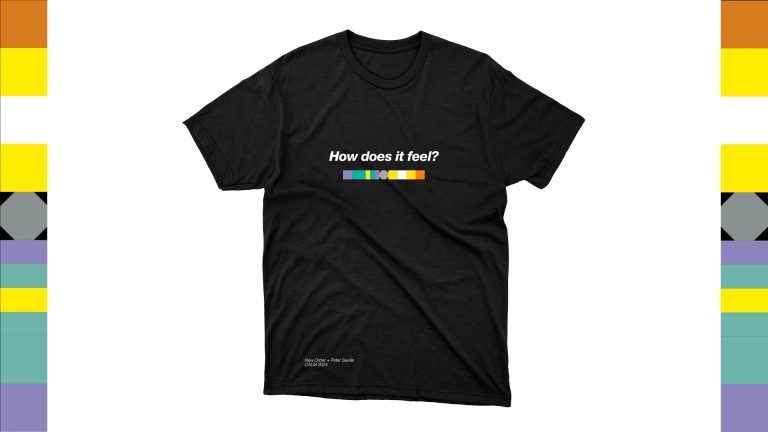Musician and long-standing CALM ambassador Frank Turner is known for his honest lyrics and his ninth studio album FTHC is no different. We caught up with him to hear how he’s laying it all on the table with his first number one album, tackling topics like grief and anxiety.
Frank joins our chat from a hotel room, after the first night touring since everything hit the fan with Covid. He admits he’s “fucking knackered and decidedly not gig fit” but that being back playing live again is “incredible”. Luckily, we’ve caught him on a day off and he’s keen to tell us about his latest album before heading to the seaside to recover from last night’s show.
FTHC (short for Frank Turner Hardcore) is perhaps his most personal album yet, dancing from gentle and reflective tracks to the angrier anthems Frank is known for. Like many, he’s struggled with his mental wellbeing over the past couple of years, missing the buzz of live shows and the connection he finds playing music to an audience:
“It’s not just my living, it’s my culture and my communion. I think lots of musicians have been realising over the last couple of years that it’s an important part of their expression and mental health. It’s so nice to be touring again, because it’s food for the soul and I’ve missed it a lot. I’m hungry to get out there and play live shows.”




